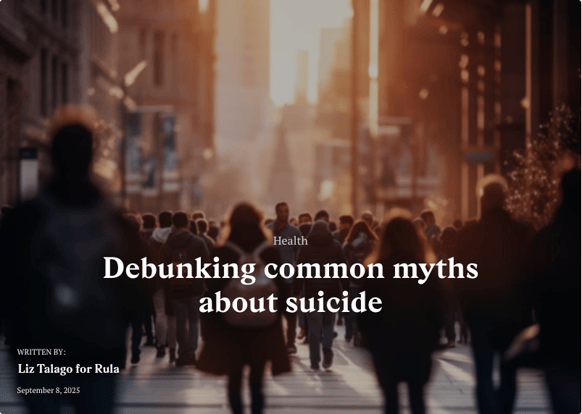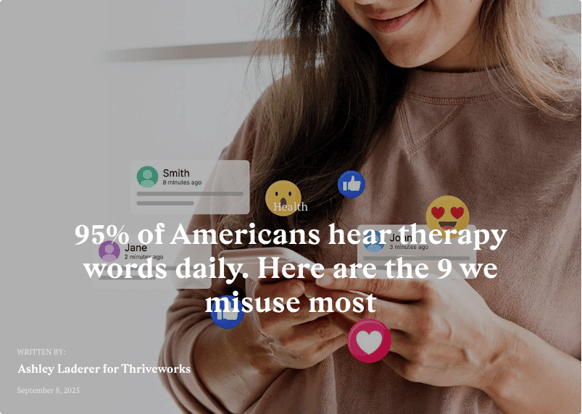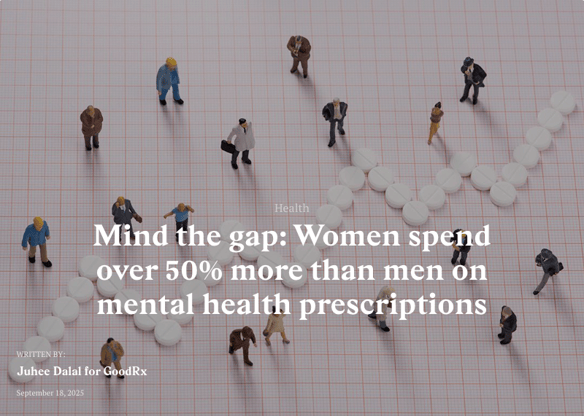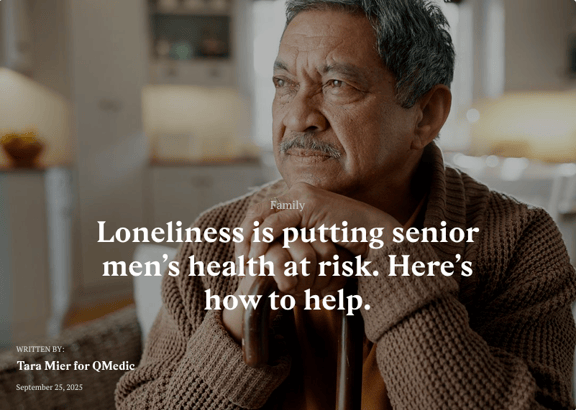24/7 news cycles at our fingertips. Political turmoil, violence, and war all broadcast in real time. Wages that haven’t kept up with inflation and the rising costs of goods and services. Shuttering social services. It’s a wonder that anyone’s mental health remains unscathed with so much weight on our shoulders.
A 2025 report from nonprofit organization Mental Health America estimated nearly 1 in 4 (23.4%) of U.S. adults experienced mental illness recently, with researchers looking at various datasets spanning 2022-2024. In another study conducted by Economist Impact, which surveyed 1,500 parents of children aged 13-17 in 2023, almost half (47%) of the parents said their teen was experiencing mental health issues.
These are just estimates, like all statistics are—a good reminder now and always. If I had to bet on it, I’d imagine those estimates fall short of the actual numbers.
As I scanned the stories that came through the Stacker Newswire in September, I noticed the staggering number of brands that had told stories about mental health.

In Blueprint’s “Going back to school isn’t just stressful for kids, parents feel it too,” published Sept. 3, author Kim Sheffield-Chang highlights the challenges that millions of parents face as their children go back to school in the fall.
“For many parents, the start of the school year triggers emotional whiplash. You go from summer’s loose rhythms to the tight choreography of morning routines, homework battles, bus schedules, and the looming question behind it all: Is my kid okay?” Sheffield-Change wrote.
The story takes a service journalism approach. It voices common concerns of parents—social dynamics, bullying, academic pressure, emotional regulations, and safety—and offers advice to parents on how to manage their own anxiety and wellness while providing the support their children need.
👉 As of Oct. 2, this story has been picked up 168 times.

Published September 17, this article from LifeStance Health discusses findings from its “Impact of Economic Stress on Americans’ Mental Health” report, which surveyed over 1,000 respondents.
One major finding indicates a cultural shift: “93% of respondents believe mental health care is just as important as physical health care. What’s more, nearly one-third of respondents consider it to be more important.” Author Susan Michnay compares the latest data to the findings from the survey conducted a year prior, which revealed that people are leaving less time between therapy sessions than they were a year before.
Still, 44% of respondents indicated they had to make the choice between therapy and other vital life expenses due to financial strain. Michnay doesn’t stop there; she goes on to offer coping strategies for those who are dealing with tight budgets.
This story is a great example of how a brand can create valuable content for publishers using data from reputable studies it conducts or commissions.
👉 So far, 165 outlets have run this story.
Best podcasts to stream for your mental health

Hers took a lighter approach tonally in telling a mental health-related story.
The ranking hinges on a methodology that Hers used to rank 30 popular mental health podcasts, which considered average reviews, number of reviews, and total episodes. The story doesn’t end with the ranking. Author Lauren Ward also offers tips on how to incorporate podcasts into your mental health routine, such as curating your podcast library and scheduling time to not only listen to the episodes but also time to implement what you’ve learned.
👉 Published only a few days ago on Sept. 26, this story already has 96 pickups, which is notable for a niche topic like podcasts.
Here are several more mental health-related stories that came across the wire last month. And keep an eye out for more stories in this realm over the next few weeks.




